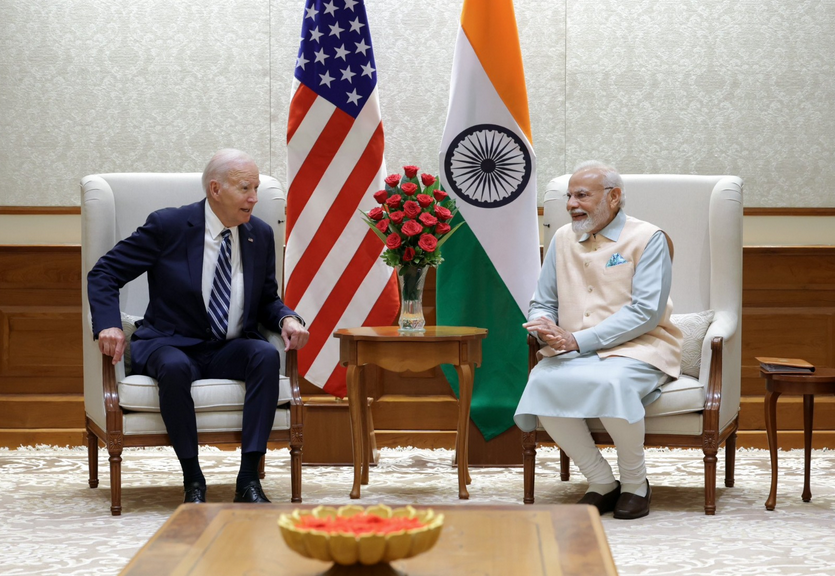New Delhi: US President Joe Biden arrived in national capital Delhi on Friday to participate in the G20 Summit to be chaired by Prime Minister Narendra Modi.
US President Biden, along with Janet Yellen, went for closed door meeting with PM Modi on Friday, after the former arrived in India. This is President Biden’s first visit to India as US President. The last US President to visit India was Donald Trump in February 2020.
Prime Minister’s Office in India informed that PM Modi and US President Joe Biden’s discussions include wide range of issues, will further deepen bond between India and US. The joint statement also said the Prime Minister looked forward to welcoming the US President to the next Quad Leaders’ Summit to be hosted by India in 2024.
The Quad, comprising India, US, Japan and Australia, has been focusing on practical cooperation to ensure a free and open Indo-Pacific in the backdrop of China’s increasing military muscle-flexing in the region.
The White House issued a joint statement of India and US government after the bilateral talks were over. “The leaders expressed their appreciation for the substantial progress underway to implement the ground breaking achievements of Prime Minister Modi’s historic, June 2023, visit to Washington” the statement read.
“Prime Minister Modi and President Biden reaffirmed the importance of the Quad in supporting a free, open, inclusive, and resilient Indo-Pacific,” the statement said.
India welcomed the US decision to co-lead the Indo-Pacific Oceans Initiative Pillar on Trade Connectivity and Maritime Transport, further to the US decision to join the Indo-Pacific Oceans Initiative (IPOI) in June 2023, it said.
Continuing to share the view that global governance must be more inclusive and representative, President Biden also reaffirmed his support for a reformed UN Security Council with India as a permanent member, and, in this context, welcomed once again India’s candidature for the UNSC non-permanent seat in 2028-29, the statement said.
The leaders also underscored the need to strengthen and reform the multilateral system so it may better reflect contemporary realities and remain committed to a comprehensive UN reform agenda, including through expansion in permanent and non-permanent categories of membership of the UN Security Council, it said.




